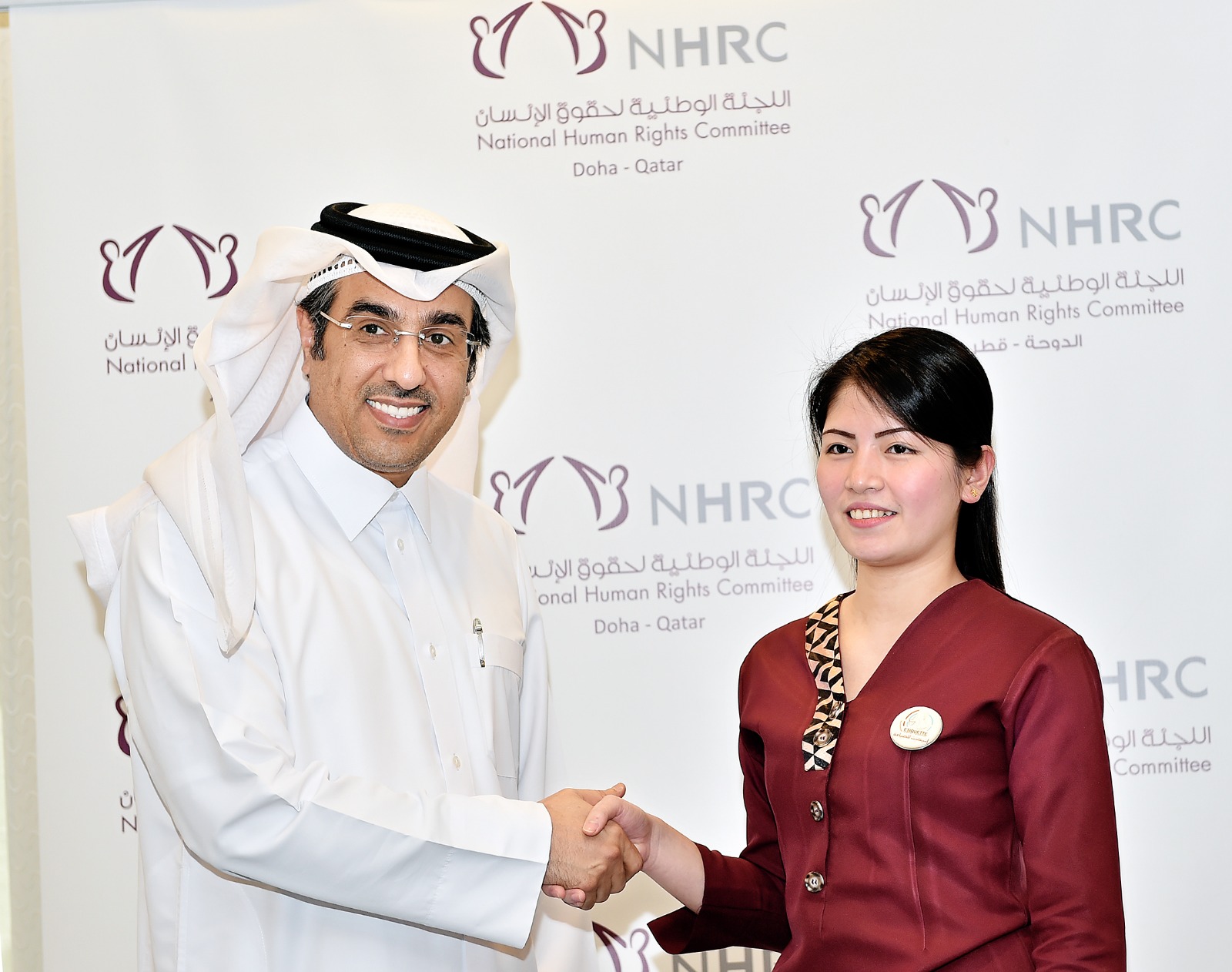News
Reforming human and labor rights in the Gulf Region —the Qatar example

News
‘I’ll bring my plane… I plan on keeping it for another four years’ – Biden on second debate with Trump

President Biden and former President Trump agreed to hold a second debate Sept. 10 hosted by ABC News.
The two candidates had already accepted an invitation earlier Wednesday to attend a CNN debate on June 27, and both confirmed later in the day on social media that they plan to attend the ABC debate in September.
“I’ve also received and accepted an invitation to a debate hosted by ABC on Tuesday, September 10th,” Biden posted on the social platform X. “Trump says he’ll arrange his own transportation. I’ll bring my plane, too. I plan on keeping it for another four years.”
Biden, of course, is referring to the presidential jet, Air Force One.
“It is my great honor to accept the CNN Debate against Crooked Joe Biden, the WORST PRESIDENT in the History of the United States and a true Threat to Democracy, on June 27th,” Trump posted on Truth Social. “Likewise, I accept the ABC News Debate against Crooked Joe on September 10th.”
It marked a whirlwind few hours that started with Biden’s campaign publicly proposing two deabtes in June and September and ended with both candidates agreeing to a date and host.
ABC News had planned to host a GOP primary debate in New Hampshire, but it was canceled after Trump and Nikki Haley said they would not attend. Martha Raddatz of ABC co-moderated one of the 2016 presidential debates; the network did not host a debate in 2020.
The candidates have chosen to go around the Commission on Presidential Debates, the organization that has arranged the showdowns dating back to 1988.
Biden campaign chair Jen O’Malley Dillon suggested working with outlets that hosted GOP primary debates in 2016 and Democratic primary debates in 2020 to avoid any perceptions of bias.
News
Nigerian officials probe plan to marry off scores of female orphans

ABUJA, NIGERIA — Nigeria’s Federal Ministry of Women Affairs says it is investigating a plan by a lawmaker in central Niger state to marry off some 100 female orphans of unknown ages later this month.
Speaker of the Niger State Assembly Abdulmalik Sarkin-Daji announced the mass wedding last week but called off the ceremony following widespread outrage.
Minister of Women Affairs Uju Kennedy-Ohanenye, speaking to journalists in Abuja on Tuesday, condemned the plans.
Kennedy-Ohanenye said she had petitioned the police and filed a lawsuit to stop the marriages pending an investigation to ascertain the age of the orphans and whether they consented to the marriages.
“This is totally unacceptable by the Federal Ministry of Women Affairs and by the government” of Nigeria, she said.
Last week, Sarkin-Daji announced his support for the mass wedding of the orphans, whose relatives were killed during attacks by armed bandits. He said it was part of his support to his constituents following an appeal for wedding funding by local traditional and religious leaders.
The mass wedding had been scheduled for May 24.
“That support I intend to give for the marriage of those orphans, I’m withdrawing it,” he said. “The parents can have the support [money], if they wish, let them go ahead and marry them off. As it is right now, I’m not threatened by the action of the minister.”
Despite national laws prohibiting it, forced or arranged marriage is a common phenomenon in Nigeria, especially among rural communities in the predominantly Muslim north, where religious and cultural norms such as polygamy favor the practice.
Poor families often use forced marriage to ease financial pressure, and the European Union Agency for Asylum says girls who refuse could face repercussions such as neglect, ostracism, physical assault and rape.
Raquel Kasham Daniel escaped being married off as a teenager when her father died and now runs a nonprofit helping children, especially less-privileged girls, get a formal education for free.
She said the ability of women to avoid forced marriage in Nigeria depends on their income and education.
“I was 16 when I lost my dad and I was almost married off, but then I ran away from home. And that gave me the opportunity to complete my education, and now I have a better life,” Daniel said.
“So, the reason why I prioritize education is to make sure that other girls have access to quality schooling so that it will help them make informed decisions about their lives. Education not only increases our awareness as girls about our rights but also enhances our prospects for higher income earning,” she said.
Thirty percent of girls in Nigeria are married before they turn 18, according to Girls Not Brides, a global network of more than 1,400 civil society groups working to end child marriage.
News
Shell investigates smoke near Gbaran oil facility in Nigeria

-

 Column2 weeks ago
Column2 weeks agoSecuring Truth: The Intersection of Investigative Journalism and Cyber Security in Global South Nations
-

 Entertainment2 weeks ago
Entertainment2 weeks agoStephcynie’s “No Lie”: A Soulful Anthem Redefining Love
-

 News2 days ago
News2 days ago‘I’ll bring my plane… I plan on keeping it for another four years’ – Biden on second debate with Trump
-

 Education2 days ago
Education2 days agoBlack teen in Georgia awarded over $14m in scholarships, accepted at 231 colleges
-

 Lifestyle2 days ago
Lifestyle2 days agoThe Duke and Duchess of Sussex’s Nigeria tour: A Round Up
-

 News2 days ago
News2 days agoSlovakia’s prime minister expected to survive assassination attempt
-

 News2 days ago
News2 days agoNigerian officials probe plan to marry off scores of female orphans
-

 News2 days ago
News2 days agoBarge slams into Galveston bridge causing collapse as oil spills into water below










